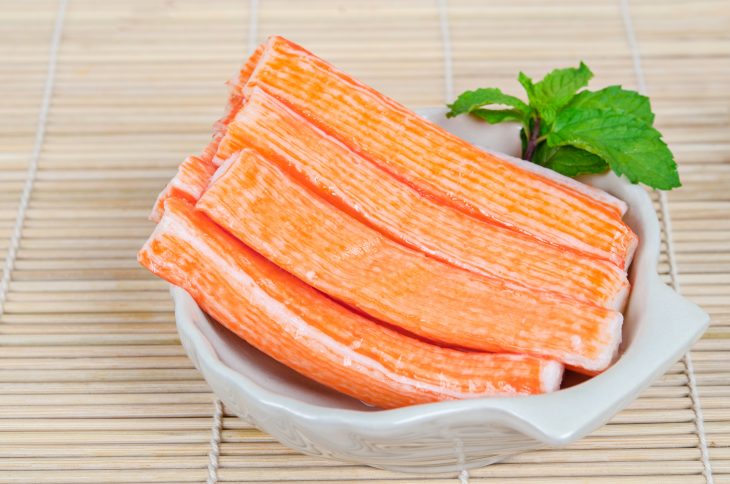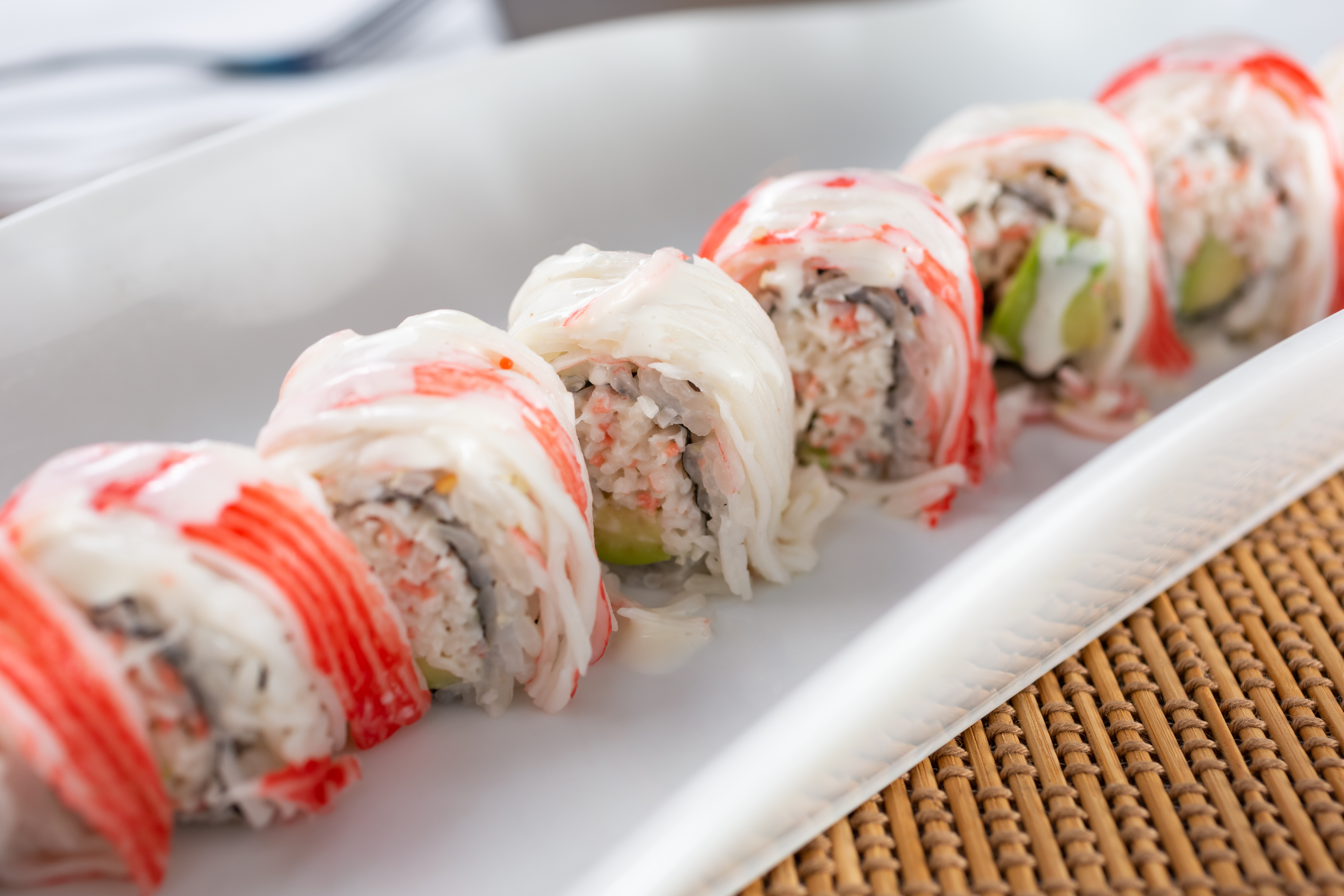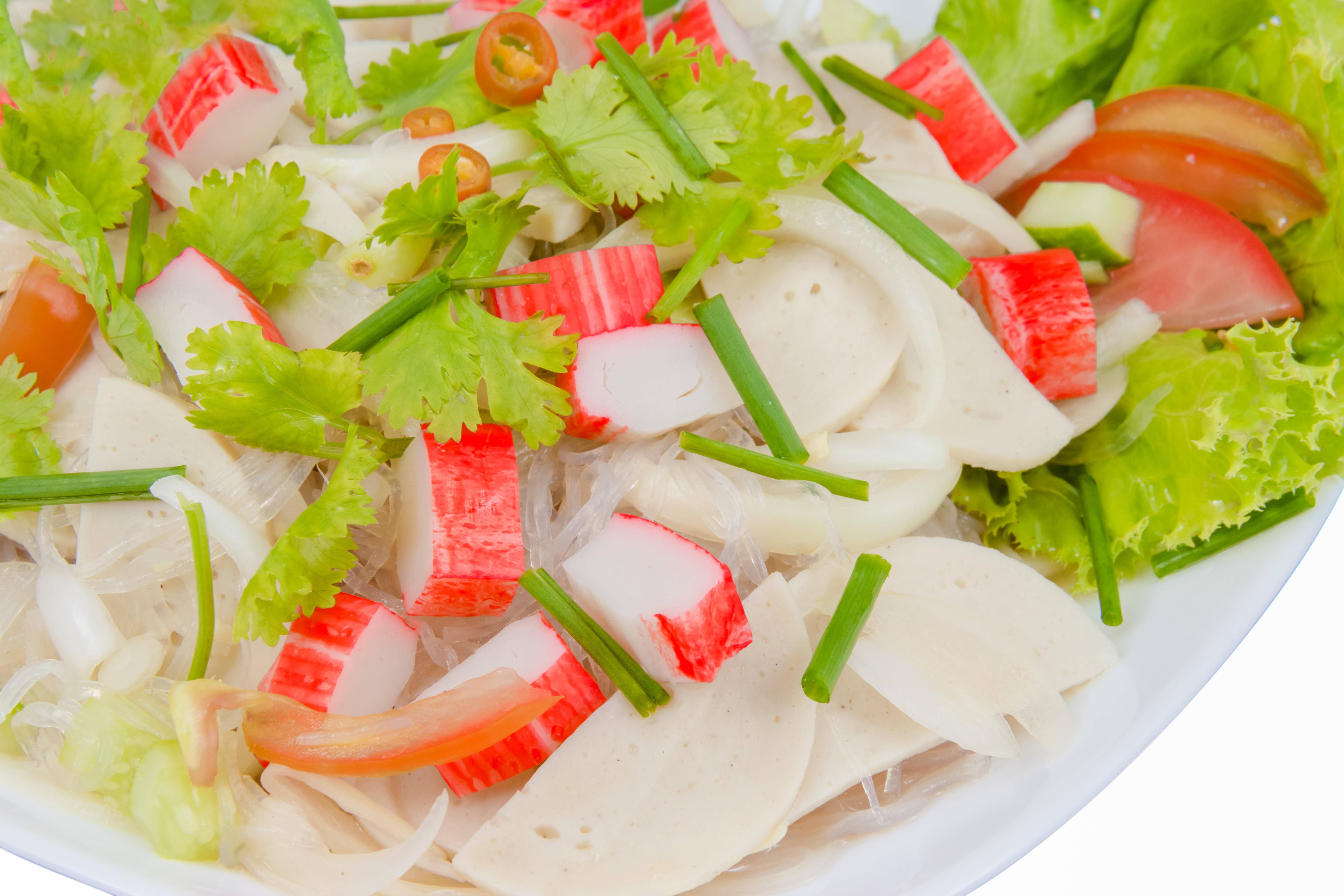
We’ve all had imitation crab once or twice, and while it’s not true seafood, there are certain facts about it that might surprise you. Imitation crab is well-known for its sweet taste, low price point, and convenience. It can make a great appetizer for any occasion and can also be used to whip up a quick meal on those days when cooking feels like too much of a hassle. However, what many people may not know is the nutritional impact this faux seafood alternative has on our bodies when we include it in our diets. So if you’re curious about the nutrition facts of imitation crab then read on as we dive into 19 surprising ways this popular snack affects your health!
A Low-Calorie Option
Imitation crab is relatively low in calories. One serving (85 g or about 1/2 cup) contains around 80-100 calories, making it a lower-calorie substitute for real crab in your favorite recipes.
High in Sodium
Imitation crab is high in sodium, with one serving providing about 600-800 mg, or roughly 25-35% of the recommended daily intake. It’s important to monitor sodium intake to maintain healthy blood pressure levels.
Contains Protein
One serving of imitation crab provides around 6-10 grams of protein. However, the protein quality is not as high as that of real crab or other whole sources of protein.
Low in Fat
Imitation crab is very low in fat, with less than 1 gram per serving. This makes it a suitable choice for low-fat diets.
Contains Sugar
Surprisingly, imitation crab contains sugar – about 2-4 grams per serving. This is due to the added sugars during the processing of surimi.
Source of Phosphorus
Imitation crab provides a moderate amount of phosphorus, which is necessary for bone health, energy production, and cell function.

Contains Carbohydrates
Unlike real crab, imitation crab contains carbohydrates, around 10-20 grams per serving, due to the starches and sugars added during processing.
Low in Cholesterol
Imitation crab is low in cholesterol, making it a heart-healthy substitute for individuals monitoring their cholesterol levels.
Contains Additives
Imitation crab is a processed food and contains various food additives, including flavorings, colorings, and binders.
Gluten Alert
Some brands of imitation crab contain wheat or other gluten-containing ingredients, so it’s not always suitable for those with gluten intolerance or celiac disease.
Not a Source of Omega-3 Fatty Acids
Unlike real crab and other seafood, imitation crab is not a significant source of omega-3 fatty acids, which are important for heart and brain health.
Contains Potassium
Imitation crab provides a small amount of potassium, an essential mineral that supports heart health and nerve function.
Source of Calcium
There is a moderate amount of calcium in imitation crab, contributing to bone health.
Contains Iron
Imitation crab provides a small amount of iron, a mineral necessary for blood cell function and energy production.

Not Suitable for Shellfish Allergies
Despite its name, imitation crab is made from fish, not crab. However, it’s often processed in facilities that also process shellfish, making cross-contamination a risk for those with shellfish allergies.
Contains Vitamin A
Imitation crab provides a small amount of vitamin A, which supports immune function, vision, and skin health.
Contains Vitamin B12
Imitation crab provides a small amount of vitamin B12, which is necessary for nerve function and the production of DNA and red blood cells.
Contains Zinc
Imitation crab contains a small amount of zinc, an essential mineral that supports immune function and wound healing.
Not a Source of Dietary Fiber
Imitation crab does not contain dietary fiber. It’s important to balance your meal with other fiber-rich foods to meet your daily requirements.
Conclusion
We’ve learned a lot about the nutrition facts of imitation crab in this post. While it may seem like a convenient quick fix for an on-the-go lifestyle, we must also acknowledge the potential health risks associated with consuming this faux seafood alternative. For those looking for a healthier option while still wanting to indulge in something sweet and savory, true seafood could be your best bet. True seafood has fewer calories and higher omega-3 fatty acid content that can help you maintain healthy cholesterol levels and provide you with essential nutrients such as vitamin D and B12.
However, if you want to stick with imitation crab then just remember to practice moderation when adding it to your diet. Too much imitation crab can lead to weight gain, nutrient deficiencies, increased risk of heart disease, and other health problems over time. So regardless of which snack choice you make; just remember that your health should always come first!
Was this page helpful?
Our commitment to delivering trustworthy and engaging content is at the heart of what we do. Each fact on our site is contributed by real users like you, bringing a wealth of diverse insights and information. To ensure the highest standards of accuracy and reliability, our dedicated editors meticulously review each submission. This process guarantees that the facts we share are not only fascinating but also credible. Trust in our commitment to quality and authenticity as you explore and learn with us.
